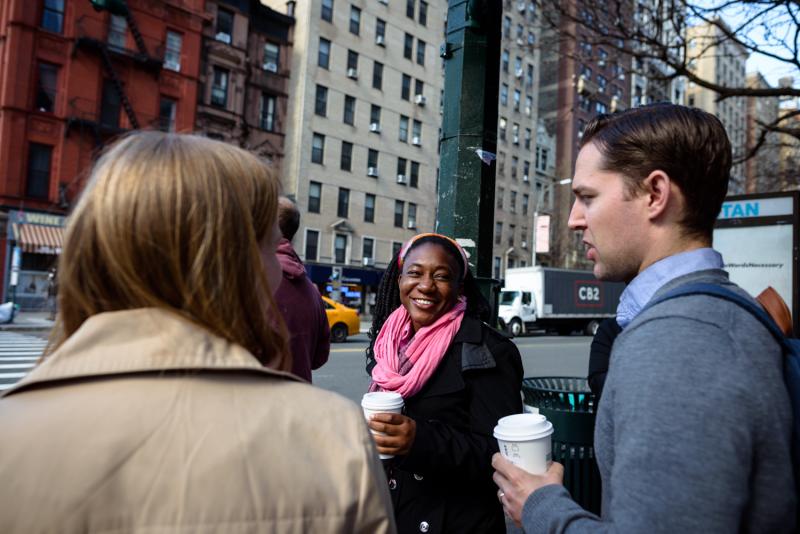
This is the time of the year when faculty, university staff, and student organizations are thinking about welcoming first-year students. Zach Baldwin discusses the unique challenge of this year when many second-year students, both undergraduate and graduate, will be on campus for the first time after a year of distance learning. He discusses some of the unique needs and challenges these students face and ways we can welcome them.
____________________
Second-year students, undergraduate and graduate, face a challenging academic year. Despite having a year of course experience behind them, many will set foot on campus for the first time this Fall. While some universities are instituting sophomore experience programming to help “second-year freshmen” acclimate, many of these students will not receive the same orientation resources as first-year students.
Second-year graduate students may feel even less supported as campus programming tends to cater to the needs of incoming undergraduate students. A survey of Berkeley’s graduate students from last summer found that nearly 50% of students are concerned about loss of income due to the pandemic. In that same study, 80% of respondents indicated that distance learning was impacting their academic progress; 70% shared that distance learning was impacting their mental health. Though these difficulties are shared across student classes, this year’s incoming second-year graduate students and sophomores face them with additional barriers.
University websites and directories can tell students what office to reach out to for financial concerns or mental health resources, but they can’t walk a student through the process of attaining resources. Having missed a year of on-campus relationship building, second-year students haven’t had the opportunity to build an informal network of administrators, faculty, and seasoned students to encourage and guide them.
Second-year students have also missed out on a variety of experiences. Many sophomores did not engage in the regular panoply of freshmen activities, from orientation to peer mentoring cohorts to first week traditions. Graduate students have missed out on research opportunities, internships, and time spent in-person with faculty mentors and other graduate students. For graduate students in shorter programs, they may have spent half of their program away from campus.
While some of the challenges are academic in nature (such as taking exams for the first time in a classroom, rather than at home), isolation is one of the greatest obstacles facing second-year students coming to campus for the first time. They are coming to campus anxious about the pandemic, mourning the loss of friends and family members, and trying to navigate a new environment without the typical resource network offered to traditional first-year students.
Strategies to Welcome
As roughly 1000 universities and colleges open their doors this semester, faculty and graduate communities have unique opportunities to extend hospitality to incoming second-year students. Some of the strategies suggested here pertain to both undergraduate and graduate students, while others fit within a particular context. These suggestions aren’t particularly novel, but they are vital for students who have missed a year of acclimation to campus. If you have additional ideas, please leave a comment at the end of the article!
For Faculty
1) Acknowledge the lost year: Second-year students may feel anxious about coming into the classroom for the first time, not just because of the pandemic, but because they haven’t been in the university environment before. Acknowledging that students may feel this way early on and letting students know that you are committed to working with them in the transition is a great way to assuage their fears.
2) Getting to know you: With students having few connections on campus, building relationships with faculty can help them feel a greater sense of belonging. As you are comfortable, consider expanding in-person office hours or hosting a meal outside of class. You could even become an InterVarsity chapter advisor, supporting students at the intersection of their faith and educational pursuits!
3) Point them in the right direction: Second-year students may not be given a comprehensive overview of the variety of resources and opportunities offered on campus. Consider taking a few minutes at the beginning or end of your first few classes to introduce students to someone from different service centers around campus, such as student finance, tutoring, counseling, community engagement, and student life.
For Graduate Communities
1) Where is the good food? One of the easiest ways to start feeling at home in a new environment is to find favorite places for shopping and dining. It’s one thing to know where campus dining is. It’s another to know that there is an amazing phở stand a short ride from campus! Invite second-year students to go with your community to check out local gems for dining, entertainment, goods, and more.
2) Share your networks: Your graduate community likely has an extensive network around campus, even if there are a handful of members. Introduce second-year students to faculty and staff around campus who made you feel at home when you first arrived.
3) Process hardship through Scripture: Create space in your graduate small group to share the difficulties and anxiety of the past year. Consider using a resource like the COVID-19 Grow Guide to look at our current experiences through the eyes of our ancient sisters and brothers.
Spiritual Hospitality
For anyone looking to welcome students in this difficult season, the first and easiest step is to listen to them. The late Henri Nouwen reflected, “Listening is a form of spiritual hospitality by which you invite strangers to become friends, to get to know their inner selves more fully, and even to dare to be silent with you.” Whether a member of the faculty or a graduate small group, listening to the stories, fears, and hopes of incoming second-year students will go a long way in helping them transition to campus in such a difficult season.

Zach Baldwin serves as the Director of InterVarsity’s Student Affairs Christian Network. He spent five years working for the VPSA of Rollins College while serving students as an InterVarsity campus minister. Over that time, Zach developed a deep appreciation for the work of student affairs professionals. Zach and his wife, Mandy, spend most of their free time exploring Walt Disney World and vintage road-side attractions around Florida.

Leave a Reply